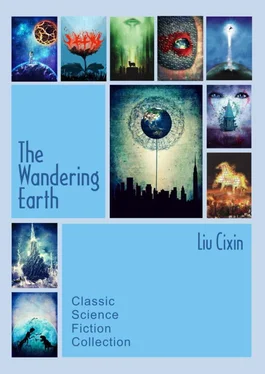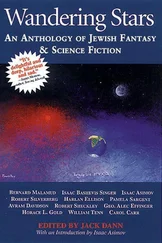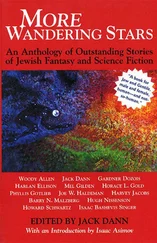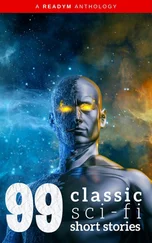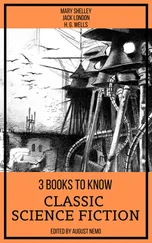Back then we were baffled when we watched films and read stories from the Pre-Solar Age. We just could not understand why people should invest so much emotion into matters that had nothing to do with survival. Watching a protagonist despair or cry over love was strange beyond words to us. In those days, the imminent threat of death and the desire to escape alive overwhelmed all else. The daily updates on the condition of the Sun and position of the Earth all but devoured our attention and ruled our emotions. This all-consuming focus gradually changed the essence of human psychology and spirituality. Love and all its foibles became mere distractions, just like a quick swig of a drink was for a gambler who cannot take his eyes off the spinning wheel.
Two months later, my father really did come back home, done living with Ms. Xing. My mother was neither happy, nor sad.
“Li Xing was very impressed with you. She told me you were a very creative student,” my father told me.
My mother, who had overheard our conversation, was genuinely puzzled. She asked, “Who is impressed with him?”
“Ms. Xing, my primary school teacher. Father just spent two months living with her,” I answered, just as perplexed as she.
“Oh, now I remember!” My mother laughed, shaking her head. “I am not even forty and my memory is already shot.” Looking up at the holographic starry sky that covered the ceiling of our house and then to the holographic forest on our walls, she continued. “You picked a good time to come back. You need to change these images. The kid and I are tired of seeing them and we don’t know how to program the damn thing.”
When the Earth again began its long fall toward the Sun, all of us had entirely forgotten the episode.
One day, the news reported that the ocean was thawing. When we heard it, our family again made its way to the seashore. At that time Earth was just crossing Mars’ orbit and with its approach, the strength of the Sun had again increased. It still should not have been enough to thaw the Earth on its own, but the Earth Engines ensured that the surface temperatures had reached rather pleasant heights. People everywhere were delighted that for once they did not need to wear their thermal suits.
Earth Engines still filled the sky of our hemisphere, but on the other half of the planet people could truly feel the Sun draw closer. Their sky was bright blue and the Sun was as brilliant as it had been before our exodus began.
We took our flying car and as we flew over the ocean, we could not spot any signs of thaw, instead seeing only a white expanse of ice. Disappointed, we got out of our car. Just as we closed the doors, we were shocked by an almighty rumble that seemed to rise from the very depths of the Earth. It sounded as if the entire planet was about to explode.
“That is the sound of the ocean!” my father shouted over the noise. “The rising temperatures are heating the thick sheets of ice unevenly, causing something very much like an earthquake.”
Suddenly, a sharp, discordant thunderclap pierced the low rumble and the people watching the ocean behind us began to cheer. I looked and saw a long crack appear, shooting across the frozen ocean like a vast, black lightning bolt; then, in the midst of the ongoing thunder, crack after crack appeared in the frozen ocean. Sea water erupted from these cracks, quickly forming torrents that spread across the icy plain.
On the way home, we looked out over the vast, long-barren land below. Weeds had begun to drill their way out of the soil, and all manner of flowers had sprung into full bloom, and tender leaves draped withered trees in green. Life had wasted no time, flourishing everywhere with vibrancy.
Every day that the Earth drew closer to the Sun tightened the hold of anxiety gripping humankind, making ever fewer choose to emerge to admire the now spring-like surface. Most of us remained hidden within the subterranean cities. We did so not to avoid the imminent heat, torrential rain, and hurricanes, but to elude the dread of the approaching Sun.
One day after I had already gone to bed, I overheard my mother quietly telling my father, “Maybe it really is too late.”
My father replied in equally hushed tones. “There were rumors like that at the first four perihelions.”
“But this time it’s true. I heard it myself from Professor Qian Dele’s wife,” came my mother’s quick and soft response. “He is an astronomer of the Navigation Commission. You all know him. Anyway, he himself told her that they have observed a further acceleration in the concentration of helium.”
“Listen, my dear, we must hold on to hope,” my father calmly but insistently replied. “Not because hope is real, but because we have to live up to nobility. In the Pre-Solar Age nobility meant money, power or talent, but now one must only hold to hope. Hope is the gold and the jewels of this age. No matter how long we live, we must hold fast to it!” He then added, “Tomorrow, please tell our child the same.”
Like everyone else, I felt ill at ease as the perihelion approached. One day, as I was going home from school I◦— without really knowing why◦— ended up in the city’s central plaza. I stood by the round fountain in its middle, in turn looking down at its sparkling blue water and up to the ethereal ripples of light reflected by the gushing water below that played across the dome above me. After a while I noticed a familiar face. It was Ling, holding a little bottle in one hand and a small tube in the other. She was blowing soap bubbles, her eyes blankly following each string of bubbles as they floated away. She watched them until they vanished, only to blow another string.
“Aren’t you a bit too old to find that amusing?” I asked her as I approached.
Ling looked at me in surprise and with a warm smile said, “Let’s go on a journey!”
“A journey?” I asked, now the one surprised. “Where to?”
Her smile beamed brighter. “The surface, of course!” She waved her hand through the air, using her wrist computer to project a hologram. The translucent image revealed a beach sunset. A breeze gently swayed the palm trees, while white waves washed ashore. A couple lay on the golden beach, black silhouettes against the backdrop of the glittering sea.
“Mengna and Dagang just sent me this. They’re already on the other side. They said that it’s not too hot out there and being in the open air would really be nice about now, so let’s go!” she told me, her enthusiasm showing.
“They’ve just been expelled for missing school,” I objected.
Ling frowned. “Hmm, that’s not what you’re really afraid of. You’re afraid of the Sun!”
“And you aren’t scared? Have you forgotten that you had therapy to treat your heliophobia?” I retorted.
She smiled again. “But I am no longer that person. I’ve finally seen the light. Look,” she said using the small tube to blow another string of soap bubbles. “Watch them closely!” She pointed at the bubbles.
I stared at the bubbles, watching the raging waves of color and light play over their surfaces, their twisting turbulences far too complex and intricate for the human mind to take in. I could not shake the thought that the bubbles knew how short their lives would be and were frenziedly revealing the countless dreams and legends of their vast memories to the world. Seconds later, the raging waves of color and light disappeared in a nearly soundless explosion, leaving behind only the tiniest wisp. They remained for less than a second before disappearing; and then there was no trace that anything had ever existed.
“Did you see? The Earth is a cosmic soap bubble; with a pop, it will be nothing. So what is there to be afraid of?” Ling asked.
It was my turn to frown. “It’s not really like that; the calculations show that after the helium flash it will take about a hundred hours before the Earth is fully vaporized.”
Читать дальше
